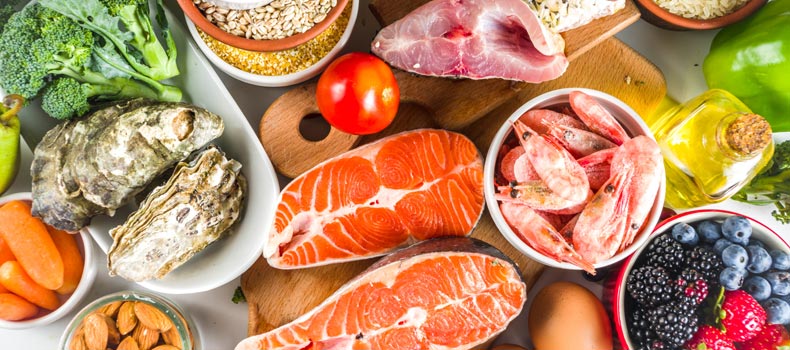Why is stroke a concern?
Strokes can occur for many different reasons, but one of the most important factors is lifestyle and diet. An unhealthy diet can lead to increased cholesterol levels, high blood pressure, and obesity, increasing the risk of stroke.
What is seafood and why is it important?
Seafood is a food that contains many important nutrients for health, such as omega-3 fatty acids, protein, vitamins, and minerals. Seafood includes fish, shrimp, scallops, and many other types of seafood. They are important in maintaining a balanced and healthy diet.
Benefits of eating seafood in preventing stroke
Eating seafood regularly can help prevent stroke. Here are some of the benefits of adding seafood to your diet:
1. Reduce the risk of blood clots
Seafood contains omega-3 fatty acids, which have the ability to reduce blood clotting and prevent the formation of blood clots in blood vessels, helping to reduce the risk of blood vessel blockage and stroke.
2. Support cardiovascular health
Omega-3 in seafood has also been shown to reduce high blood pressure and reduce the risk of cardiovascular disease, contributing to stroke prevention.
3. Improve blood lipids
Nutrients in seafood can improve blood cholesterol levels, helping to maintain cardiovascular health. However, it is important to pay attention to the amount of food eaten each week to ensure the best health
4. Reduce inflammation
Omega-3 also has anti-inflammatory properties, helping to reduce the risk of blood vessel inflammation and stroke. This is something that few people pay attention to and know about.
Seafood that is good for heart health
When it comes to eating seafood for heart health, there are some types of seafood you should consider:
1. Salmon
Salmon is a rich source of omega-3, which can help reduce the risk of stroke and cardiovascular disease. Therefore, this is a type of seafood that you cannot ignore to supplement your heart health.
Reference: Norwegian salmon at Ngo Su’s store
2. Shrimp
Shrimp is also rich in protein and omega-3, making it a good choice for heart health. Shrimp is very popular in Vietnam, including domestic shrimp such as natural tiger shrimp, blue lobster, flower lobster or imported high-end shrimp such as Alaska lobster, Canadian shrimp…
3. Scallops
Scalps are rich in zinc and vitamin B12, improving heart health. In particular, you should choose imported scallop products such as Japanese scallops or those with clear origins to ensure quality.
How to have a reasonable seafood diet
To benefit from seafood, you need to integrate them into your daily diet. Here are some suggestions:
Eat at least twice a week: Try to have at least two meals containing seafood a week.
Prepare seafood in a healthy way: Limit frying, frying, or grilling seafood with a lot of oil. Steaming, boiling, or grilling seafood are healthier methods.
Combine seafood with green vegetables and grains: Combining seafood with green vegetables and grains is the optimal way to take advantage of the benefits for cardiovascular health.
Limit when consuming seafood
Although seafood has many health benefits, some aspects should also be limited:
Risk of contamination: Choose seafood from a reliable source to avoid contamination.
Nutritional Supplements: If you can’t get enough seafood, consider taking omega-3 supplements.
A sensible menu for people who want to prevent stroke
Here is an example menu to help you prevent stroke:
Breakfast: A serving of salmon oil, whole grain bread and a pomegranate.
Lunch: Grilled shrimp, white pasta and a green salad.
Dinner: Boiled mackerel, steamed rice and a bowl of boiled vegetables.
A healthy lifestyle is important
Finally, to prevent stroke, you need to maintain a healthy lifestyle. Exercise regularly, avoid smoking, and limit alcohol consumption.
Conclusion
Eating seafood can help you prevent stroke and maintain good cardiovascular health. Incorporate seafood into your daily diet and maintain a healthy lifestyle to protect your health.

